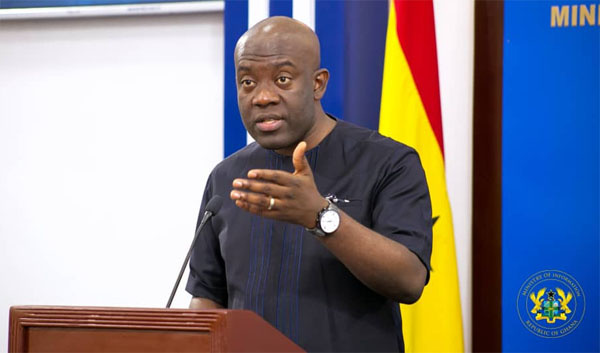NPP Alleges NDC Government Has Introduced Eight New Taxes

At a recent press briefing, the New Patriotic Party (NPP) accused the National Democratic Congress (NDC)-led government of quietly rolling out eight new tax measures since taking office. The claim was formally made by Kojo Oppong Nkrumah (MP for Ofoase‑Ayirebi), who warned Ghanaians of a rising tax burden under the current administration .
🧾 The ‘Eight New Taxes’ Claim
Kojo Oppong Nkrumah highlighted that the Mahama administration has imposed “eight new taxes so far,” though he did not enumerate them in detail during the broadcast . A related video titled “This Mahama Administration Has Introduced Eight New Taxes” provides confirmation of the allegation .
🔍 What Are These Taxes?
Other senior NPP figures, including Ambassador Charles Owiredu (MP for Abirem), have named several specific impositions, which may be part of the count:
- A GH¢1 “dumsor levy” per litre of fuel (Energy Sector Levies Amendment Act, 2025)
- A 7% tax on plastic products
- A 15% VAT on non-life insurance
- Electricity tariff increases totaling about 2.45%, bringing total hikes to roughly 17.2%
- Petrol and diesel price increases of 2% and 5% respectively
It’s unclear whether all of these are included in the “eight” or if there are additional levies affecting sectors like mining, real estate, telecoms or financial services as hinted by broader commentary .
🗣️ NPP Response & Political Context
The NPP has framed these developments as contrary to campaign promises made by the NDC, particularly pledges to repeal unpopular levies like the E‑levy and COVID‑19 levy. Instead, they claim the government is shifting the fiscal burden onto citizens through other taxing mechanisms
Analyst Insight
- Several of the new taxes—including the dumsor levy, plastic tax, insurance VAT, and electricity/petrol adjustments—are clearly identifiable.
- It remains uncertain whether all eight are legislative tax instruments or include indirect cost increases (e.g. tariff hikes).
- Fact‑checking bodies may yet crystallize a precise list as the NPP releases more documentation or parliamentary records emerge

